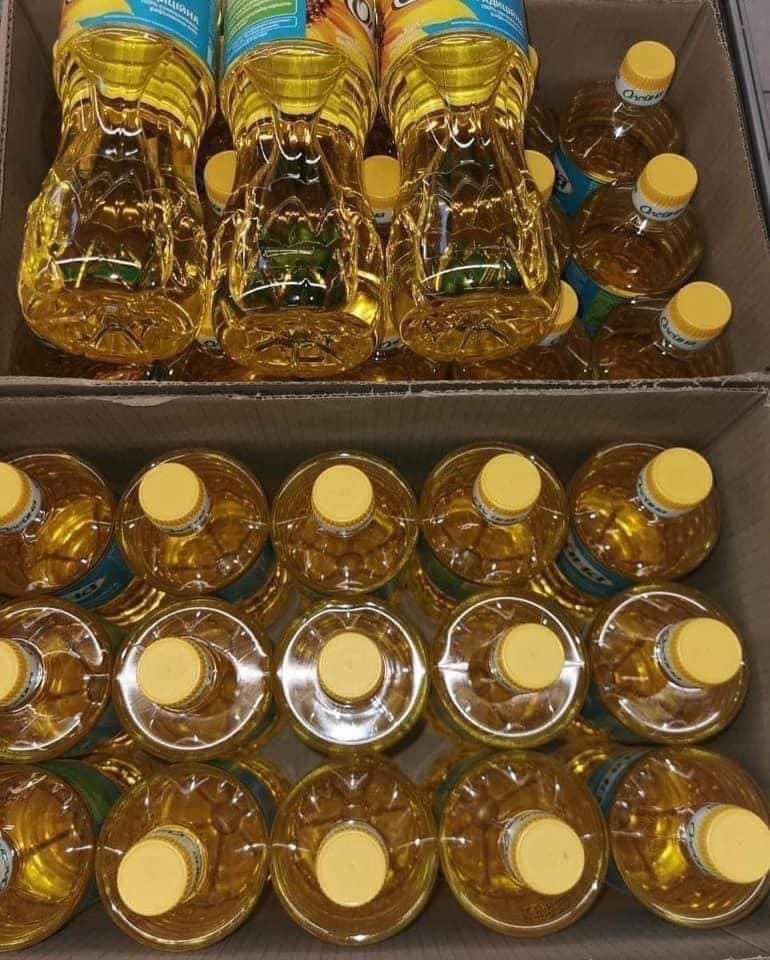Cultivating Tomorrow: Sustainability in Tanzanian Sunflower Oil – A Global Perspective
The global agricultural landscape is at a critical juncture, balancing the imperative to feed a growing population with the urgent need to protect our planet. Sustainability has emerged not merely as a buzzword, but as the foundational principle for resilient food systems. In East Africa, Tanzania stands as a vibrant agricultural hub, its fertile lands and diverse climate offering immense potential for commodity production. Among its key agricultural exports, sunflower oil holds a significant position, playing a vital role in the national economy and the livelihoods of countless smallholder farmers.
This article delves into the intricate journey of sustainability within Tanzania’s sunflower oil sector, exploring the challenges, opportunities, and the strategic path forward to ensure this valuable commodity not only thrives but also meets the evolving demands of a conscious global market. As a testament to this commitment, forward-thinking enterprises are already ensuring that sustainably sourced Tanzanian agricultural commodities can reach consumers worldwide, offering worldwide shipping to connect quality with demand.
The Economic and Social Tapestry of Tanzanian Sunflower Oil
Sunflower (Helianthus annuus) is one of the dominant oilseed crops in Tanzania, cultivated across various regions, including Dodoma, Singida, Manyara, and Arusha. Its cultivation primarily involves smallholder farmers who rely on it for both cash income and domestic consumption. The oil extracted from sunflower seeds is a staple in Tanzanian kitchens, lauded for its nutritional value and health benefits. Economically, the sector contributes significantly to GDP, supports rural employment, and serves as a crucial input for the local edible oils industry.
However, the sector’s growth trajectory is inextricably linked to its sustainable development. Unchecked expansion and traditional farming methods pose environmental and social risks that could undermine its long-term viability.
Navigating the Challenges: The Path to Sustainable Production
Achieving sustainability in Tanzanian sunflower oil production is a multifaceted endeavor, encountering a range of environmental, social, and economic hurdles:
Environmental Challenges:
Land Degradation and Deforestation: Expansion of sunflower cultivation, often driven by demand, can lead to clearing of natural habitats, contributing to deforestation and soil erosion, particularly when accompanied by unsustainable farming practices.
Water Scarcity and Inefficient Use: While sunflower is relatively drought-tolerant, inconsistent rainfall patterns due to climate change necessitate efficient water management. Traditional irrigation methods often lead to excessive water consumption.
Chemical Inputs: Over-reliance on synthetic fertilizers and pesticides by some farmers can degrade soil health, contaminate water sources, and harm biodiversity.
Climate Change Vulnerability: Tanzanian agriculture is highly susceptible to climate variability, with unpredictable rainfall, droughts, and floods directly impacting crop yields and farmer resilience.
Social Challenges:
Smallholder Vulnerability: A majority of sunflower farmers are smallholders with limited access to modern farming techniques, improved seeds, credit, and extension services, making them vulnerable to market fluctuations and climate shocks.
Post-Harvest Losses: Inadequate storage facilities and transportation infrastructure lead to significant post-harvest losses, reducing farmer income and increasing food waste.
Knowledge Gaps: A lack of comprehensive training on sustainable agricultural practices, pest management, and soil conservation hinders the adoption of more environmentally friendly methods.
Economic Challenges:
Value Chain Inefficiencies: Fragmented supply chains and limited processing capabilities mean value addition often occurs outside Tanzania, reducing potential returns for local producers.
Market Access and Price Volatility: Smallholders often struggle with direct market access, relying on middlemen who may offer unfavorable prices. Global commodity price fluctuations further exacerbate income instability.
Competition from Imports: The Tanzanian market faces competition from cheaper imported edible oils, which can depress local prices and discourage domestic production.
Cultivating Opportunities: A Framework for Sustainable Growth
Despite these challenges, significant opportunities exist to transform Tanzania’s sunflower oil sector into a model of sustainable agricultural commodity production. These opportunities span technological innovation, policy reform, and community empowerment.
1. Empowering Farmers through Knowledge and Technology:
Sustainable Agricultural Practices: Promoting agro-ecological approaches such as conservation agriculture (minimum tillage, crop rotation, cover cropping) enhances soil fertility, reduces erosion, and improves water retention.
Improved Seed Varieties: Investing in research and development for drought-resistant and high-yielding sunflower varieties can boost productivity while reducing environmental strain.
Integrated Pest Management (IPM): Training farmers on IPM techniques minimizes reliance on chemical pesticides, protecting beneficial insects and ecosystem health.
Efficient Irrigation: Adoption of drip irrigation and smart irrigation technologies can significantly reduce water consumption, especially in drier regions.
2. Strengthening Value Chains and Market Linkages:
Local Processing and Value Addition: Encouraging investment in local crushing and refining facilities can create jobs, increase domestic value capture, and produce higher-quality oil for export.
Direct Market Access and Fair Trade: Facilitating direct links between farmers and buyers, potentially through cooperatives, ensures fairer prices and better market integration.
Certification Schemes: Promoting internationally recognized sustainability certifications (e.g., organic, fair trade, or specific sustainable palm oil-like standards) can open doors to premium global markets.
3. Policy and Governance Frameworks:
Land Tenure Security: Clear and secure land rights incentivize long-term sustainable land management practices by farmers.
Incentives for Sustainability: Government policies can offer subsidies or tax breaks for farmers adopting sustainable practices or for companies investing in sustainable processing.
Environmental Regulations: Robust enforcement of environmental regulations concerning deforestation, water usage, and chemical application is crucial.
4. Public-Private Partnerships (PPPs):
Investment in Infrastructure: PPPs can drive investment in rural infrastructure, including roads, storage facilities, and energy, which are critical for an efficient and sustainable supply chain.
Research and Development: Collaborative efforts between government, academia, and the private sector can accelerate the development and dissemination of sustainable farming innovations.
A Framework for Sustainable Tanzanian Sunflower Oil
To encapsulate these opportunities, the following table outlines key pillars for a robust sustainability framework within the Tanzanian sunflower oil sector.
Table 1: Pillars of Sustainability for Tanzanian Sunflower Oil
Pillar Key Objectives Example Indicators
Environmental Preserve biodiversity, soil health, and water resources Hectares under conservation agriculture; Water footprint; Pesticide use reduction (kg/ha); GHG emissions (tCO2e/ha)
Social Improve farmer livelihoods, equity, and food security Average farmer income increase; Access to training; Child labor incidence (zero tolerance); Food security index
Economic Enhance value chain efficiency and market access Value-added processing capacity; Export volume of certified oil; Price premiums for sustainable products; Post-harvest loss reduction (%)
Governance Promote transparent and responsible management Land tenure clarity; Adherence to labor laws; Implementation of environmental regulations; Stakeholder engagement
The Global Market: Sustainable Tanzanian Sunflower Oil with Worldwide Shipping
The global demand for sustainable food products is on a steep upward trajectory. Consumers, increasingly aware of environmental and social impacts, are willing to pay a premium for commodities that are ethically sourced and responsibly produced. This trend presents a monumental opportunity for Tanzanian sunflower oil.
By adhering to rigorous sustainability standards, Tanzanian producers can differentiate their products in the international market, appealing to environmentally conscious buyers and health-focused consumers. The narrative of smallholder empowerment, ecological stewardship, and high-quality, naturally derived oil from the heart of Africa adds significant value.
For distributors and consumers worldwide, access to such high-quality, sustainable commodities is crucial. Businesses committed to fair trade and environmental responsibility are now facilitating this access, offering worldwide shipping for Tanzanian agricultural commodities, including sustainably produced sunflower oil. This global reach ensures that the positive impact of sustainable farming in Tanzania extends across continents, linking local efforts to global consumption.


Conclusion: A Vision for a Resilient Future
The journey towards sustainability in Tanzanian sunflower oil is an ambitious yet achievable one. It requires a concerted effort from all stakeholders: farmers, local communities, government bodies, NGOs, and international partners. By investing in sustainable practices, empowering smallholders, strengthening value chains, and leveraging global market demand, Tanzania can transform its sunflower oil sector into a beacon of responsible agricultural commodity production.
Embracing sustainability is not just about mitigating risks; it’s about unlocking new opportunities for economic growth, environmental preservation, and social equity. As Tanzanian farmers cultivate their fields with a renewed commitment to the planet, their efforts translate into a superior product that resonates with discerning global consumers. For those seeking sustainable, high-quality agricultural commodities from a source committed to a better future, know that these products are available with the convenience of worldwide shipping.
For inquiries about sustainable Tanzanian agricultural commodities and our worldwide shipping capabilities, please visit https://mozzarellacompanylimited.com/contact/.



Leave a Reply